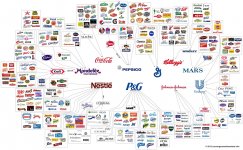The majority of Canadians said they are likely (43 per cent) or somewhat likely (29 per cent) to boycott U.S.-made goods if there is a trade war between the two countries. Twenty-six per cent said they are either somewhat unlikely (10 per cent) or unlikely (16 per cent) to do so. Two per cent said they are unsure.
When asked how likely they were to stop shopping at U.S. retailers in Canada in the event of a trade war, nearly seven in ten Canadians said they are likely (43 per cent) or somewhat likely (25 per cent) to stop. Close to three in ten said they are somewhat unlikely (13 per cent) or unlikely (16 per cent) to stop shopping at U.S. retailers in Canada. Three per cent said they are unsure.
That sentiment is backed up by the recent rise of Twitter hashtags including #BuyCanadian, #BoycottUSProducts and #BoycottUSA, used to spread tips on leveraging purchasing power to defend Canada’s honour.
Canadian travel dollars are a key driver of the U.S. tourism industry. But what if the snowbirds stop flying south?
Overnight trips from Canada rose 4.8 per cent to 20.2 million in 2017, snapping a three-year decline, according to data from Statistics Canada.
The Nanos survey also found that many Canadians are willing to halt travel south of the border, and potentially reverse that upward trend.
When asked how likely they were to curtail or stop travelling to the U.S. in the event of a trade war, a majority of Canadians said they are likely (57 per cent) or somewhat likely (16 per cent) to do so. One in four said they are somewhat unlikely (8 per cent) or unlikely (17 per cent) to curtail or stop travelling to the U.S. Two per cent said they are unsure.
Nik Nanos said avoiding travel to the U.S. seems to be the most popular option considered by Canadians, since it’s “an easy way to send a very clear message that will hit American pocketbooks in terms of their tourist economy immediately.”



